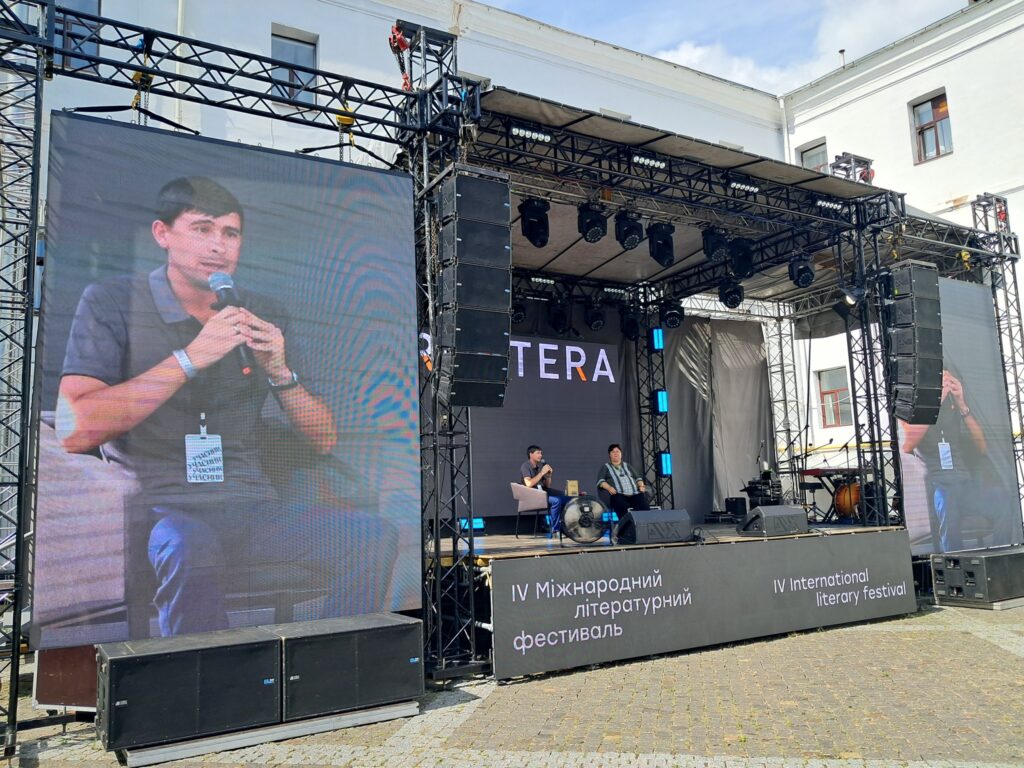On July 27-28, 2024, the IV International Literary Festival “Frontera” took place in the city of Lutsk on the territory of the Okolny Castle. The event brought together Ukrainian and foreign writers, translators and media workers. The focus theme of the festival was the slogan “Change of roles”. This is not only about the artists who joined the ranks of the Armed Forces or became volunteers, but also about the very moment of the rearrangement of each of us: those who protect, help, wait, and experience the great war together.
Among the participants of the festival was the leading specialist of the Institute of History, Ethnology and Archeology of the Carpathians, Bohdan Paska. He took part in a public conversation with Lesia Bondaruk, a historian from Lutsk, an employee of the Ukrainian Institute of National Remembrance, on the topic “They collapsed the USSR: the Volyn Sixtiers in opposition to russification and occupation of Ukraine”. Bohdan Paska presented the edition “Trial of Valentyn Moroz: Declassified Materials”. In the book, materials from the former archive of the KGB of the USSR, which relate to the criminal case against Valentyn Moroz, were published for the first time. The author also added reviews, denunciations, witness speeches and all the key works of V. Moroz of the dissident period to the publication.
“Valentyn Moroz said things that were inconvenient for the states of that time. He directly called for maximum support for Ukrainian political prisoners, the very idea of Ukrainian statehood, independence. He appealed to the Ukrainian diaspora so that the youth would not lose their national roots, join youth organizations, and even planned to create armed formations among the Ukrainian diaspora, which, ultimately, could be used to liberate Ukraine. Of course, these ideas were not popular. It was a completely different era and few people, even among the Ukrainian diaspora, could take up arms and fight back then,” the book’s editor noted.
In total, more than 30 Ukrainian writers, translators, journalists, and historians took part in the “Frontera” festival. Almost 2,000 people became guests of the event.

